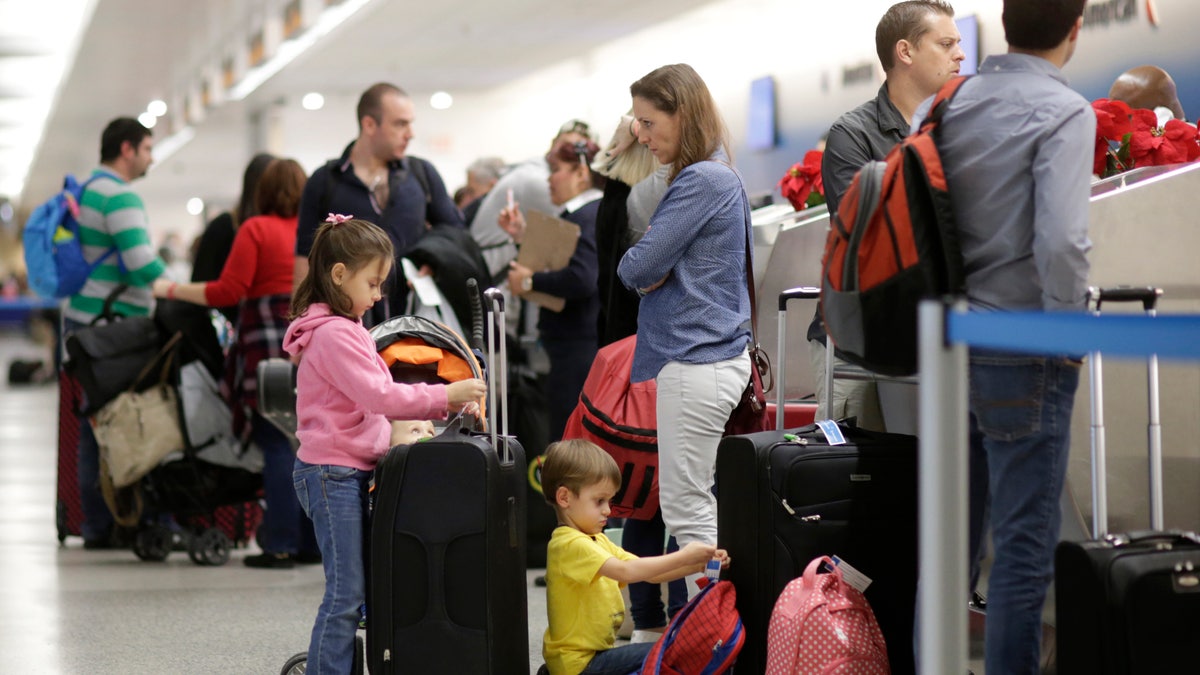
Travelers in Miami International Airport (AP)
The nation's leading airlines are confident they can handle higher Thanksgiving travel this year partly because more people have signed up for quick-screening programs that are designed to keep airport security lines moving.
An airline trade group said Wednesday that about 27.3 million people will fly on U.S. airlines over a 12-day period that starts Nov. 18 and ends the Tuesday after Thanksgiving. That's up 2.5 percent from last year.
The industry expects airport lines to be manageable because more people have signed up for programs such as TSA PreCheck that screen travelers more quickly.
The Transportation Security Administration said that nearly 4 million people are enrolled in PreCheck, up from 1.75 million a year ago. More than 5 million are in other programs, mostly Global Entry, which is run by U.S. Customs and Border Protection.
BUTTERBALL ROLLS OUT TEXT HELP LINE FOR THANKSGIVING TURKEY TIPS
"The doubled enrollment in expedited-screening programs from one year ago gives us great reason for optimism about how smooth the process will be," John Heimlich, chief economist for the trade group Airlines for America, told reporters. "We're confident, I think, the bigger wild card is weather."
Long security lines were a problem at many airports this spring. American Airlines said that more than 70,000 passengers missed flights in the first five months of the year due to long lines. The TSA responded by increasing staffing and encouraging people to sign up for PreCheck.
For Thanksgiving travelers, the airline group expects the busiest travel days to be the Wednesday before and the Sunday and Monday after the holiday. Over the 12-day period, the airlines expect about 55,000 more passengers per day, but they say they have added about 74,000 seats per day with bigger planes and more flights.
The trade group also gave a financial snapshot of the industry. In the first nine months of this year, the top nine carriers reported a combined pretax profit of $18.3 billion, down from $18.7 billion in the same period last year.
Revenue has dropped on a 5.8 percent decline in average fares, the group said. Fares have been falling since the start of 2015 because airlines took advantage of cheaper fuel to add flights faster than demand warranted.
